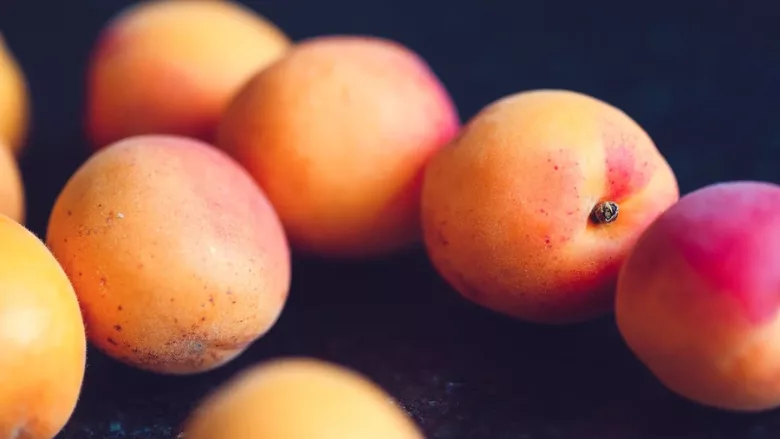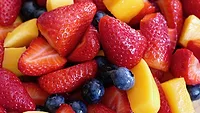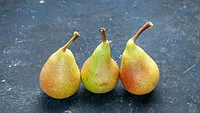CPS-Funded Study Examining Antimicrobial Coatings for Stone Fruits

Image credit: Markus Spiske via Pexels
Although stone fruit are considered relatively low risk for contamination by foodborne pathogens because they grow off-ground and undergo packing under dry conditions, the occurrence of several recent multistate outbreaks prompted the University of Tennessee’s (UT’s) Qixin Zhong, Ph.D. to investigate how to reduce microbial risks for stone fruit. Funded by the Center for Produce Safety (CPS), Dr. Zhong conducted a study to examine whether adding food-grade antimicrobials to the wax and fungicidal coatings typically applied to stone fruit might mitigate foodborne pathogen contamination while extending shelf life.
Co-principal investigator on the project was UT microbiologist Thomas Denes, Ph.D., whose expertise complimented Dr. Zhong’s focus on food ingredient science and technology.
Packinghouses typically apply an edible wax coating to stone fruit to slow moisture loss or dehydration during storage and to extend shelf life. A regulatory-approved fungicide is usually added to help control native yeasts, molds, and fungi found on stone fruit. However, the fungicidal additive is not effective against foodborne pathogens of concern to the produce industry, like Salmonella enterica and Listeria monocytogenes.
Dr. Zhong and Dr. Denes reviewed available literature of food-grade antimicrobials used for produce and other commodities to select candidates for further investigation. Antimicrobials were chosen based on their physical and chemical properties, such as water solubility, and how they might affect compatibility with the coatings. The selected antimicrobials were screened individually and in combination for their efficacy in controlling S. enterica and L. monocytogenes under laboratory conditions, to test the researchers’ theory that combining antimicrobials might result in synergies with greater efficacy than the sum of their individual effects. The scientists also looked into how pH adjustments could enhance the antimicrobials, identifying which performed the best and examining how they work when added to the coatings.
The second part of the project commenced in summer 2023, and was conducted with the support of industry. Prima® Wawona and the California Fresh Fruit Association (CFFA) supplied Dr. Zhong with overnight shipments of freshly picked peaches that had yet to run through a packinghouse. The researchers washed and brushed the fruit to simulate the treatment they would undergo in a commercial packinghouse. The peaches were then inoculated with either S. enterica or L. monocytogenes before an antimicrobial coating was applied. The researchers also left some of the fruit uncoated to compare with the treated group.
The peaches were put in a 32 °F (0 °C) cooler to mimic packinghouse storage. The researchers pulled samples at days five, ten, 15, and 20 to measure pathogen die-off. The fruit were also weighed to determine moisture loss, along with fungal, mold, and/or yeast growth.
Once the 2024 California peach harvest begins, the researchers plan to repeat the trial to validate their initial results. Dr. Zhong hopes that his team’s findings will provide industry with knowledge to enhance their food safety practices.
Looking for quick answers on food safety topics?
Try Ask FSM, our new smart AI search tool.
Ask FSM →









